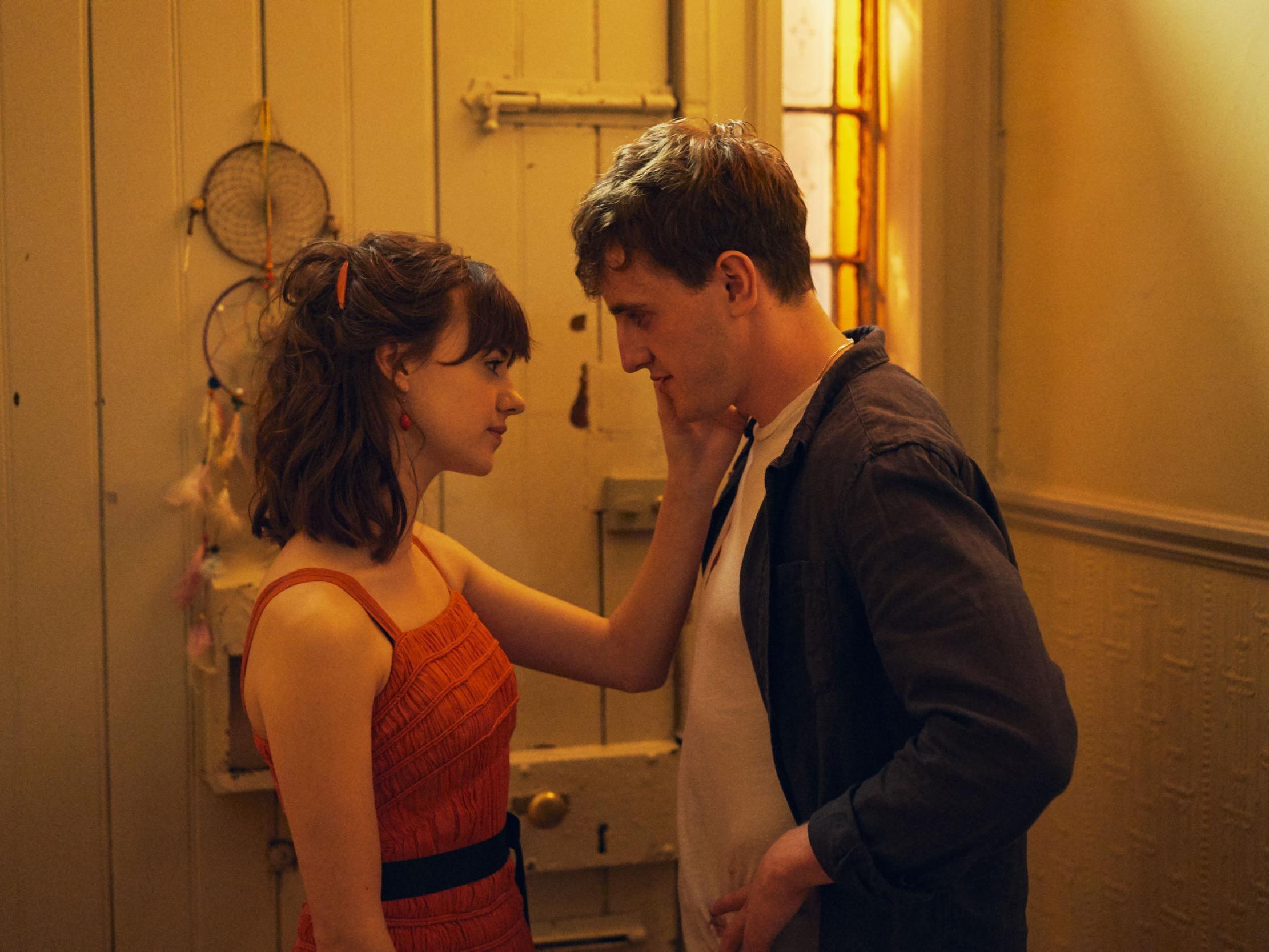Clumsy sex and longing stares: How Normal People captures the angst of young romance
While plenty of young drama is played for shock or laughs, the anticipated BBC3 adaptation of Sally Rooney's best-selling book lingers on what goes unsaid between its adolescent lovebirds. And there is lots of humping, says arts columnist Fiona Sturges


In Normal People, the new series based on 2018’s stratospherically successful coming-of-age novel by Sally Rooney, two teenagers from the same Irish town move in and out of each other’s lives over four years, navigating the slings and arrows of friendship and romance through school and into university. There’s Marianne (Daisy Edgar-Jones), an outcast with a combative streak who lives in a big house straight from the Farrow & Ball catalogue, and Connell (Paul Mescal), the working-class football hero whose single mother, Lorraine, cleans Marianne’s home. The pair are at opposite ends of the social spectrum but nonetheless have things in common: intelligence, introspection, a love of books. And so they begin a relationship, which, at Connell’s insistence, is to remain a secret from their peers.
Naturally, the older, wiser viewer knows this spells doom for them but we also understand that the pair are blind to the bigger picture. Because what Normal People – adapted here by Rooney alongside Alice Birch – conveys so eloquently is not just love across the social divide but the intensity and the paralysing insecurity of late adolescence. It reveals how every slight from your peers is felt with the ferocity of a branding iron and how one’s true feelings must be hidden at all costs. As well as a love story, it is an acute portrait of the agony of youth.
We are not short of TV series about the life and loves of teenagers, among them 13 Reasons Why, Euphoria, Riverdale and Sex Education. Many offer up the teenage experience for shocks, laughs or bring with them a heightened visual reality, all the better for entertaining their young audience. There’s nothing wrong with that, of course, though there has long been a gap in the market for a series that takes the subject as seriously as it is felt by those experiencing it. There’s also a difference between shows made for teens and those made about them, and which strive to reflect, in almost anthropological fashion, their tentative journeys through first love, friendship and independence. Cinema has recently shown a greater interest in a more nuanced version of adolescence, too, through films such as The Edge of Seventeen, Eighth Grade and Lady Bird.
Normal People may be about teenagers but it’s not exclusively aimed at them – indeed many would find it ponderous and slow-moving. What sets it apart from its teen-centric contemporaries is the subtle prodding of what exists beneath the surface. As well as showing us the lies Marianne and Connell tell each other, it reveals the lies that they tell themselves: Connell may believe that it’s better for both of them that they keep their relationship under wraps, but he remains stubbornly in denial about the emotional toll on Marianne, even after his mother bollocks him for his insensitivity. Meanwhile, Marianne’s absence of self-esteem makes an early appearance as she daydreams about watching Connell having sex with someone else.
It’s also rare to find a series so unafraid of silence. As in Rooney’s book, the dialogue is sparse, with the gut-punches invariably lying not in what is said but what is not. The silence continues in the long, lingering shots of Connell and Marianne, sometimes together but more often marooned in their respective worlds, lost in thought and not able to articulate that which separates them. The camera gets right up in their faces, capturing every twitch and every tiny hurt. It’s a credit to Edgar-Jones and Mescal that they both hold their nerve in a production that, for much of the time, comes over as an epic staring contest with the camera.

The sex in Normal People is also graphic but, in the early stages in particular, is sensitively drawn, encapsulating the awkwardness and accidental farce of inexperience without playing it for laughs. Compare this to the comic-book depictions of Sex Education, which is sharp on the mechanics of sex but less so on the feelings that come with it. Ultimately, it’s Marianne who is hurt most by the secrecy of their relationship. Her comfortable life doesn’t protect her from a sadness which others see as aloofness; her undisguised contempt for her teachers – “I have nothing to learn from you,” she tells them – masks a deeper trauma. Where Connell’s relationship with his mother is built on warmth and honesty, Marianne is the product of a neglectful widowed mother and an abusive brother. Her self-loathing leads her to collude in their secret, and to walk past Connell at school as if he were a stranger.
Rooney’s book has been called a millennial love story though it could exist in almost any era, such is the insulated nature of the protagonists’ relationship. As it’s depicted here, you could put the pair of them in bonnets and breeches and the power of the piece would scarcely be dented. As adults with jobs and responsibilities and bills to pay, it can be tempting to look back and shrug off the melodrama of our formative years, but Normal People reminds us that these feelings run deep and can shape our lives forever.
Join our commenting forum
Join thought-provoking conversations, follow other Independent readers and see their replies
Comments
Bookmark popover
Removed from bookmarks